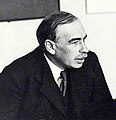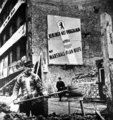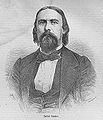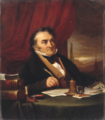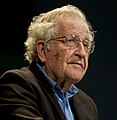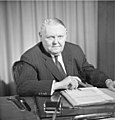Portal:Liberalism
The Liberalism portal
Liberalism is a political and moral philosophy based on the rights of the individual, liberty, consent of the governed, political equality, the right to private property, and equality before the law. Liberals espouse various and often mutually conflicting views depending on their understanding of these principles but generally support private property, market economies, individual rights (including civil rights and human rights), liberal democracy, secularism, rule of law, economic and political freedom, freedom of speech, freedom of the press, freedom of assembly, and freedom of religion. Liberalism is frequently cited as the dominant ideology of modern history.
Liberalism became a distinct movement in the Age of Enlightenment, gaining popularity among Western philosophers and economists. Liberalism sought to replace the norms of hereditary privilege, state religion, absolute monarchy, the divine right of kings and traditional conservatism with representative democracy, rule of law, and equality under the law. Liberals also ended mercantilist policies, royal monopolies, and other trade barriers, instead promoting free trade and marketization. The philosopher John Locke is often credited with founding liberalism as a distinct tradition based on the social contract, arguing that each man has a natural right to life, liberty and property, and governments must not violate these rights. While the British liberal tradition emphasized expanding democracy, French liberalism emphasized rejecting authoritarianism and is linked to nation-building. (Full article...)
Selected article -
The Liberal Party of Canada (LPC; Quebec French: Parti libéral du Canada, PLC) is a federal political party in Canada. The party espouses the principles of liberalism, and generally sits at the centre to centre-left of the Canadian political spectrum, with their main rival, the Conservative Party, positioned to their right and the New Democratic Party positioned to their left. The party is described as "big tent", practicing "brokerage politics", attracting support from a broad spectrum of voters. The Liberal Party is the longest-serving and oldest active federal political party in the country, and has dominated federal politics of Canada for much of its history, holding power for almost 70 years of the 20th century. As a result, it has sometimes been referred to as Canada's "natural governing party".
Founded in 1867, the party first came into power in 1873 under Alexander Mackenzie, but were voted out five years later due to the economic conditions at the time. They would not come back to office until 1896; Wilfrid Laurier was prime minister from that year until the party's defeat in 1911 and his tenure was marked by several compromises between English and French Canada. The party then governed again from 1921 to 1926, 1926 to 1930, and from 1935 to 1957 first under William Lyon Mackenzie King and then Louis St. Laurent, both of whom gradually built a Canadian welfare state. Lester B. Pearson expanded the welfare state during his tenure as prime minister from 1963 to 1968, while his successor, Pierre Trudeau, continued this expansion while promoting economic nationalism, social progressivism, and a more independent foreign policy during his governance from 1968 to 1979 and from 1980 to 1984. After electoral defeats in 1984 and 1988, the party returned to power in 1993 under Jean Chrétien, who combined social liberalism with fiscal conservatism through a Third Way philosophy, a tradition which continued under his successor, Paul Martin, until the party lost power in 2006. The party regained power under Justin Trudeau, who has served as prime minister since 2015. (Full article...)
Selected biography -
Norberto Bobbio (Italian: [norˈbɛrto ˈbɔbbjo]; 18 October 1909 – 9 January 2004) was an Italian philosopher of law and political sciences and a historian of political thought. He also wrote regularly for the Turin-based daily La Stampa. Bobbio was a social liberal in the tradition of Piero Gobetti, Carlo Rosselli, Guido Calogero, and Aldo Capitini. He was also strongly influenced by Hans Kelsen and Vilfredo Pareto. He was considered one of the greatest Italian intellectuals of the 20th century. (Full article...)
List of selected biographies
|
|---|
Selected quote
General images
Subcategories
Related portals
WikiProjects
Topics
Recognized content
Associated Wikimedia
The following Wikimedia Foundation sister projects provide more on this subject:
-
Commons
Free media repository -
Wikibooks
Free textbooks and manuals -
Wikidata
Free knowledge base -
Wikinews
Free-content news -
Wikiquote
Collection of quotations -
Wikisource
Free-content library -
Wikiversity
Free learning tools -
Wiktionary
Dictionary and thesaurus






